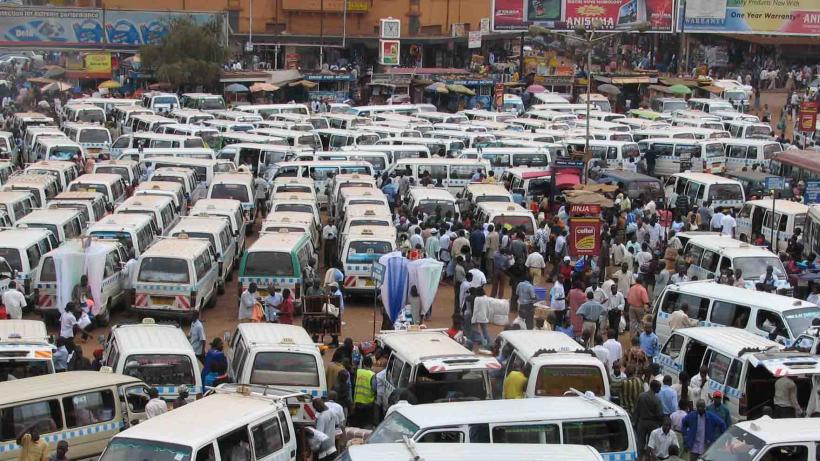
The new urban agenda: Cities of the future
Emerging from two days of discussion and debate on cities at the recent IGC Cities Conference, the challenge that resonated most widely from both research and policy participants was how urban infrastructure can be adapted to accommodate rising levels of urban density.
Rates of urbanisation, particularly for African cities are not expected to slow-down anytime soon. Despite the promise of higher productivity and economic gains associated with urbanisation, without requisite investments in infrastructure and institutions, prosperity is not a guarantee. More research is needed on policy priorities of city authorities as well as to ensure that investments provide good value for money. City and municipal budgets are not infinite; large, ill-conceived infrastructure projects have the potential to suck up billions of dollars, without generating the intended benefits for residents.
A tale of two African cities
In a Q&A session, the leaders of two important African cities – Patricia De Lille, the Mayor of Cape Town, and Jennifer Musisi, the Executive Director of the Kampala Capital City Authority – highlighted the challenge for African cities in keeping pace with urbanisation rates.
De Lille and Musisi both said that providing services such as water and sanitation to all urban residents remained a key challenge. In Kampala, urban growth is outstripping the capacity of the city to provide public services for all – the cost of water, for example, is often too high for the urban poor, and the city is left bearing the burden of the health risks associated with the lack of access to clean water. In Cape Town, a legacy of apartheid has meant that city officials have to overcome significant historical and structural barriers to access and equality of public services for all citizens.
The two city leaders pointed to lack of resources as another key challenge in managing their cities. In Kampala, chronic mismanagement of economic resources and high levels of corruption have hampered efforts to fund large infrastructure projects and other initiatives. Musisi shared her solution to increasing the effectiveness of city government – replace all of the city’s ineffective employees with people who have their own vision for Kampala and want to be a part of the city’s transformation. De Lille echoed the importance of a shared vision of progress and development as being essential to successful leadership at the municipal level and to ensure that vital initiatives are not hindered by slow bureaucracy.
In Cape Town, a legacy of apartheid has meant that city officials have to overcome significant historical and structural barriers to access and equality of public services for all citizens.
Show me the money
Many of the barriers to improving the institutional effectiveness of city authorities seem to stem from resource constraints and the need to better align incentives both for tax collectors and tax payers. Ineffective tax systems are both the cause and a symptom of under-development, particularly for cities undergoing rapid urbanisation, such as Kampala. Without collecting sufficient revenues from taxation, city authorities are severely limited in the ability to provide or scale up public service delivery. This reflects the reality in most developing countries where tax systems are characterised by low levels of tax enforcement and high levels of tax evasion.
Basic public provisioning and access to clean water and sanitation should be on-going priorities for city governments. Migration flows into cities has led to expanded informal settlements. In such high density, urban slums, a lack of access to clean water and sanitation could prove highly problematic for health systems, particularly in the face of rising anti-biotic resistance. Despite the high initial costs of building water and sanitation structures, the benefits from reducing stressors on health systems may, in the long-run, outweigh capital expenditures.
Identifying the mechanisms with which city authorities can address gaps in urban public finance span a range of approaches from efforts to motivate tax collectors and improve tax administration to reforming land use regulations and enforcing land rights through formal titling. Other smaller interventions have looked at the effectiveness of applying behavioural interventions, or the use of policy nudges to encourage preferred behaviours. Ultimately though, further research is needed on understanding how different policy channels interact and affect revenue collection levels.
Stuck in a jam
In tandem with institutional gaps, sufficiency of urban infrastructure remains a significant challenge for city authorities. Building new infrastructure or upgrading existing infrastructure will require large capital investments. Financial sustainability of such investments however, remains a key challenge. In the case of Cape Town, De Lille pointed out that without sufficiently high levels of population density, the construction of a transportation network would not be affordable. In contrast, Kampala is an example of how rapid densification of a city leads to the proliferation of informal and unregulated transport providers. The Boda Bodas (motor-bike taxis of Kampala) are notorious for flaunting road-rules, often driving over sidewalks and medians to circumvent traffic jams. These unregulated modes of transportation are a symptom of traffic congestion that imposes a large economic and social toll on the city. Musisi estimated that 24,000 man hours per day are lost by commuters due to traffic jams.

Image credit: Floeschen
While access to transport is rarely characterised as primary to survival, it is an identifiable contributor to global poverty traps. Inadequate infrastructure restrains higher levels of productivity and prosperity of cities.
Musisi estimated that 24,000 man hours per day are lost by commuters due to traffic jams.
Availability of public transportation networks that are both accessible and affordable for low-income residents is a key policy priority. Though, as illustrated by the contrasting problems facing Cape Town and Kampala today, it is certain that there are no short-cuts or easy fixes. Effective solutions must be tailored to the context and capacity of existing institutions.
Stay tuned next week for our recap of the most interesting academic papers presented in the January 2016 IGC Cities Conference.

